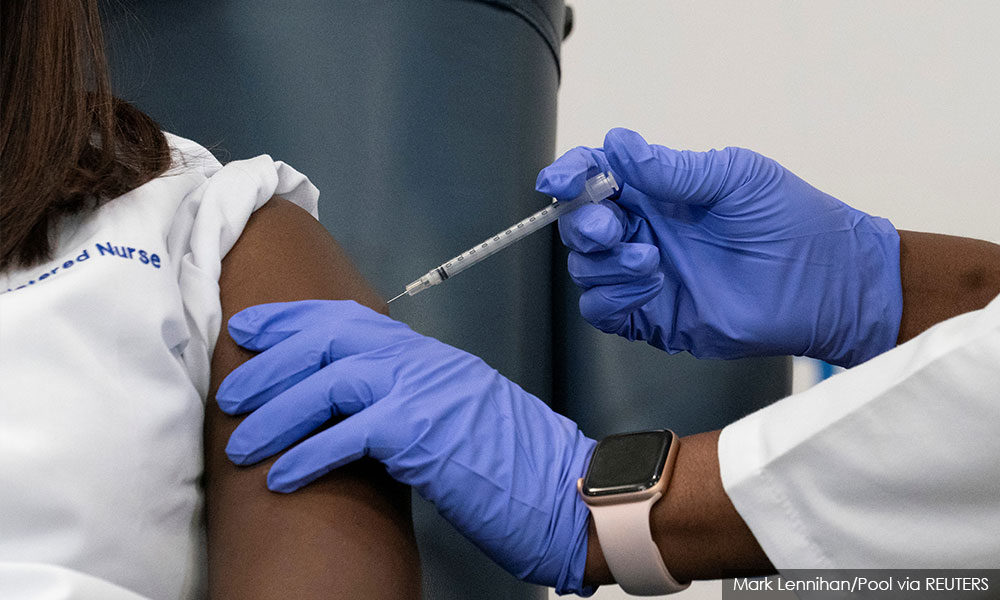Vaccines protect against 'Long Covid' symptoms - study
People who have received two vaccine doses are significantly less likely to develop long-term illness compared to unvaccinated individuals, even when they become infected with Covid-19.
This protection for vaccinated individuals also reduces the risk of becoming infected in the first place, according to the authors of a study conducted in the UK.
“We found that the odds of having symptoms for 28 days or more after post-vaccination infection were approximately halved by having two vaccine doses.
“This result suggests that the risk of ‘Long Covid’ is reduced in individuals who have received double vaccination when additionally considering the already documented reduced risk of infection overall,” they wrote in the peer-reviewed paper published in The Lancet Infectious Diseases on Wednesday.
Researchers based in the UK and the US analysed data collected from users of a Covid-19 symptom tracking app that is popular in the UK, which encourages users to report daily whether they are experiencing any of the 32 Covid-19 symptoms listed in the app.
Long Covid risks nearly halved
The app was also used to collect other user-reported data such as their sociodemographic information, Covid-19 test results, vaccination status and health information.
They found that in 592 breakthrough infections where the necessary data is available, only 31 cases (5.2 percent) reported that their symptoms lasted more than 28 days.
This represents a 49 percent reduction compared to a comparison group of unvaccinated individuals, who were selected to match the vaccinated group based on the date of their positive Covid-19 test, on whether they are healthcare workers and on their sex, body-mass index and age.

Infections in fully vaccinated individuals were more likely to result in no symptoms at all, while those who did experience symptoms experienced fewer of them and are much less likely to require hospitalisation.
However, the study did not report the nature of the Long Covid symptoms.
It also did not determine the Covid-19 variant involved in the infections.
Nevertheless, the study period covered infections that occurred from Dec 8 last year to July 4 this year. This covered a period where the Alpha variant was initially dominant in the UK, before the Delta variant arrived in March this year and supplanted Alpha as the prevalent variant by May.
Added protection, but not invulnerable
Previously, several studies have already demonstrated the ability of vaccines in preventing Covid-19 symptoms, hospitalisations and deaths. To a lesser extent, it also prevented any Covid-19 infection, including asymptomatic ones.
One study conducted by Imperial College London, for example, found that vaccines reduced the risk of infection from the highly transmissible Delta variant by around 50 to 60 percent, including asymptomatic infections.
Despite these protections, however, a study at an Israeli hospital published in July found that Long Covid is still possible for fully vaccinated individuals.
Of 39 breakthrough cases among the hospital staff, seven reported prolonged symptoms, including loss of smell, persistent cough, fatigue, weakness, breathing difficulties and muscle aches.
Nine workers took leave from work beyond the 10 days required for quarantine, of whom four returned to work within two weeks. One worker has not returned after six weeks.
This study had provided some of the earliest insights in the academic literature on Long Covid cases among fully vaccinated individuals.
Unlike the latest study from the UK, however, the Israeli study was unable to assess whether vaccines had reduced the risk of Long Covid. This was due to its small size, and the finding was incidental to the main purpose of the study. - Mkini
✍ Credit given to the original owner of this post : ☕ Malaysians Must Know the TRUTH
🌐 Hit This Link To Find Out More On Their Articles...🏄🏻♀️ Enjoy Surfing!




















Post a Comment